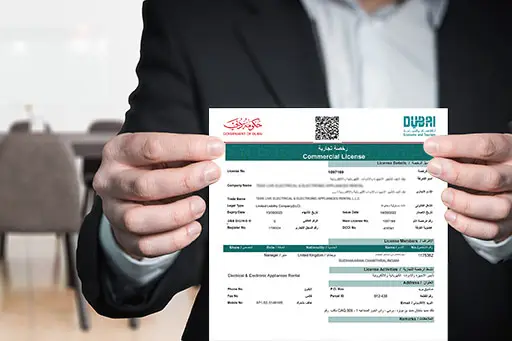Introduction
For decades, the United Arab Emirates built its reputation as a tax-free business hub. Entrepreneurs, corporations, and investors flocked to Dubai, Abu Dhabi, and other Emirates because they could run companies without worrying about paying corporate tax. The government focused on attracting foreign investment through low regulatory barriers, world-class infrastructure, and zero direct taxation. This reputation shaped the global image of the UAE as a safe haven for businesses looking to expand across the Middle East, Africa, and Asia.
Things started to change in 2022 when the Ministry of Finance announced the introduction of a federal corporate tax. The law officially came into effect on June 1, 2023, but not every company immediately felt its impact. Some were still completing financial years that began before the effective date. By 2025, however, the corporate tax regime has fully kicked in across the UAE. Whether you run a small mainland company, a free zone entity, or a branch of a multinational corporation, you now need to understand how this tax works and how it affects your operations.
The good news is that the UAE corporate tax remains among the lowest in the world. At 9 percent for most companies, it is still a far better deal compared to traditional financial centers where rates range from 20 to 30 percent or more. That said, compliance is mandatory, and penalties can be significant if you ignore the rules. This guide breaks down everything you need to know about corporate tax in the UAE as of 2025, including who pays, what exemptions exist, how free zones are treated, and what steps you should take to stay compliant.
What is Corporate Tax?
Corporate tax, also known as corporate income tax, is a direct tax imposed on the profits of companies and other businesses. Unlike VAT, which is applied to goods and services, corporate tax is charged on net income after expenses. In simple terms, once your company calculates total revenue and deducts allowable costs, the remaining profit becomes taxable.
Globally, corporate tax is a standard feature in almost every economy. The United States levies it at 21 percent, while in countries like France and Germany, rates go even higher. Until recently, the UAE stood out as one of the few places in the world where companies paid no corporate tax, apart from those operating in the oil and gas sector or foreign banks which faced special regimes.
The decision to introduce corporate tax in the UAE was not random. It was influenced by several international factors. For one, the OECD has been pushing countries to implement a global minimum tax to prevent profit shifting and tax base erosion. Multinationals were setting up operations in tax-free jurisdictions like the UAE, even when little or no economic activity took place there, leading to global pressure for reform. By adopting corporate tax, the UAE aligns itself with these international standards, protects its reputation as a compliant jurisdiction, and avoids being blacklisted.
It is also worth noting that corporate tax is different from personal income tax. The UAE still does not levy personal income tax, which means that salaries, wages, and other individual earnings remain tax-free. The new regime applies only to business profits.
UAE Corporate Tax Timeline and Law
The corporate tax journey in the UAE has been gradual. Here is how it unfolded:
- January 2022: The Ministry of Finance announces the introduction of federal corporate tax.
- December 2022: Federal Decree-Law No. 47 of 2022 on Taxation of Corporations and Businesses is issued.
- June 1, 2023: The law comes into effect. Businesses with financial years starting on or after this date fall under the new regime.
- 2023–2024: First wave of filings and compliance requirements begin for companies with financial years aligned with the law.
- 2025: All companies in the UAE, regardless of their financial year, are now fully within the scope of the law.
The legislation is designed to be simple and clear. It sets out who is subject to tax, the applicable rates, exemptions, compliance obligations, and enforcement mechanisms. Importantly, the law ensures alignment with international standards such as OECD Base Erosion and Profit Shifting (BEPS) guidelines.
This timeline matters because many businesses initially thought they could delay compliance. While some were not required to file in 2023 due to differing financial year start dates, by 2025 every company must prepare and file corporate tax returns. Ignoring the law is no longer an option.

Corporate Tax Rate in the UAE
One of the most frequently asked questions is simple: How much tax do companies pay in the UAE?
The rates are straightforward:
- 0 percent on taxable income up to AED 375,000.
- 9 percent on taxable income above AED 375,000.
- 15 percent minimum for multinational corporations that fall under OECD Pillar Two rules (typically those with consolidated revenues of EUR 750 million or more).
This tiered system is designed to protect small businesses and startups. For many entrepreneurs, especially freelancers and micro-business owners, profits remain below the AED 375,000 threshold. This means they effectively pay zero corporate tax, making the UAE still very attractive for early-stage companies.
For larger companies, the 9 percent rate is one of the lowest in the world. Compared to the United Kingdom at 25 percent, India at 30 percent, or the United States at 21 percent, the UAE remains competitive. Even when factoring in compliance costs, most businesses still save significantly by basing operations in the Emirates.
It is important to note that corporate tax applies to net profit, not revenue. Businesses can deduct allowable expenses such as rent, salaries, utilities, and other operational costs. This ensures that only genuine profit is taxed, which is fairer compared to turnover-based taxes.
Who Needs to Pay UAE Corporate Tax?
Not every entity in the UAE is subject to corporate tax, but most are. The law outlines several categories.
Mainland Companies
All mainland companies operating under the Department of Economic Development are subject to corporate tax. This includes LLCs, private companies, and public joint stock companies.
Free Zone Companies
This category has created the most questions. Free zones remain attractive because of their tax incentives, but under the new regime, the situation is more nuanced. Free zone companies can still enjoy 0 percent tax on qualifying income, provided they meet certain conditions. Qualifying income typically includes business done outside the UAE or with other free zone companies. However, if a free zone company does business with the mainland, non-qualifying income is subject to the 9 percent tax.
Multinational Corporations
Large multinational corporations that meet OECD Pillar Two criteria may face a 15 percent effective tax rate. This ensures the UAE complies with the global minimum tax framework.
Foreign Companies
Foreign businesses are subject to corporate tax if they have a permanent establishment in the UAE. A permanent establishment is defined broadly and can include having an office, a branch, or even significant employees conducting business regularly.
Freelancers and Small Businesses
The law exempts small businesses below the AED 375,000 threshold. Freelancers and sole proprietors registered with a business license who earn below this threshold do not pay corporate tax. However, they may still be required to file returns and declare income.

Exemptions and Reliefs
The UAE has built exemptions into the law to protect specific industries and encourage investment.
- Natural resource companies such as those in oil and gas continue to be taxed at the Emirate level under existing regimes.
- Dividends and capital gains from qualifying shareholdings are exempt.
- Intra-group transactions and restructurings may qualify for relief if conditions are met, preventing double taxation within group companies.
- Charities and public benefit organizations can apply for exemption if they meet qualifying conditions.
- Government entities and pension funds are generally exempt.
These exemptions ensure that the law is not overly burdensome on sectors critical to the UAE economy while maintaining alignment with global standards.
Compliance and Filing Requirements
Compliance is where many businesses face challenges. The UAE Federal Tax Authority (FTA) oversees administration and has set clear requirements.
- Registration: All companies must register for corporate tax with the FTA, even if they are exempt or fall under the 0 percent bracket.
- Filing: Companies must file a corporate tax return electronically for each financial period. Returns are due within 9 months from the end of the relevant financial year.
- Payment: Any tax due must be paid by the filing deadline.
- Documentation: Businesses must maintain proper accounting records, financial statements, and supporting documentation for at least seven years.
Penalties apply for non-compliance. These include fines for late filing, late payment, and inaccurate reporting. The FTA has emphasized education and awareness, but by 2025 enforcement is strict.
Practical Implications for Businesses
Corporate tax in the UAE is not just about paying 9 percent. It requires businesses to adopt more structured accounting and compliance systems. Here are some practical implications:
- Better bookkeeping: Companies that previously relied on minimal record-keeping must now maintain proper accounts.
- Increased demand for auditors and tax advisors: Businesses are seeking professional help to ensure compliance.
- Impact on pricing and margins: Some companies may need to adjust prices or reduce costs to offset the new tax burden.
- More transparency: Multinationals must disclose more details about global operations to align with OECD standards.
For small businesses, the impact is limited, but the compliance requirements still matter. Even if you fall under the 0 percent bracket, filing is necessary.

Comparing UAE Corporate Tax with Other Countries
To appreciate how attractive the UAE remains, it helps to compare.
- United States: 21 percent federal rate plus state taxes in some cases.
- United Kingdom: 25 percent.
- India: 30 percent for large corporations, with some reductions for smaller firms.
- Saudi Arabia: 20 percent.
- Qatar: 10 percent.
At 9 percent, the UAE is still highly competitive. Even for multinationals facing 15 percent under Pillar Two, the UAE offers advantages in infrastructure, location, and business environment.
How Free Zones Fit into the Corporate Tax Landscape
Free zones remain a major draw for entrepreneurs. While the introduction of corporate tax created uncertainty, the government has made it clear that free zones will continue to play a vital role.
Free zone companies can still benefit from 0 percent tax on qualifying income. The conditions usually include:
- Maintaining adequate substance in the UAE.
- Earning qualifying income from overseas business or transactions with other free zone companies.
- Complying with transfer pricing rules.
This means free zones still provide tax advantages, but companies must structure operations carefully. Mainland business activity often disqualifies income from 0 percent treatment.
Steps to Stay Compliant in 2025 and Beyond
If you are running a company in the UAE, here are practical steps to take:
- Register for corporate tax with the FTA.
- Review your financial year to understand when your first return is due.
- Implement proper accounting systems if you have not already.
- Engage tax advisors to clarify exemptions, especially for free zone income.
- Maintain records for at least seven years.
- Train your finance team on compliance requirements.
- Plan cash flow to ensure you can meet tax payment deadlines without stress.

Conclusion
The introduction of corporate tax in the UAE marks a historic shift in the country’s economic model. By 2025, the law is fully in place, and every business operating in the Emirates must take it seriously. While the 9 percent rate remains one of the lowest globally, compliance is now part of doing business in the region.
For entrepreneurs and companies, this is both a challenge and an opportunity. On one hand, it means stricter reporting and a small reduction in net profits. On the other, it brings the UAE into alignment with international best practices, enhances its credibility as a transparent business hub, and protects its long-term attractiveness for global investment.
If you are considering setting up a business in the UAE or already operate one, understanding corporate tax is no longer optional. With the right guidance and systems in place, compliance can be straightforward. The UAE continues to offer a world-class environment for growth, and corporate tax, while new, is simply another step in the country’s evolution as a global business destination.








